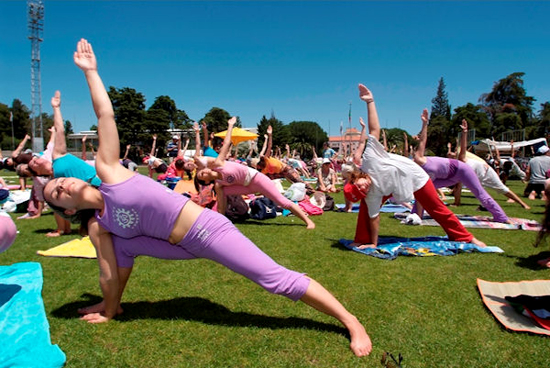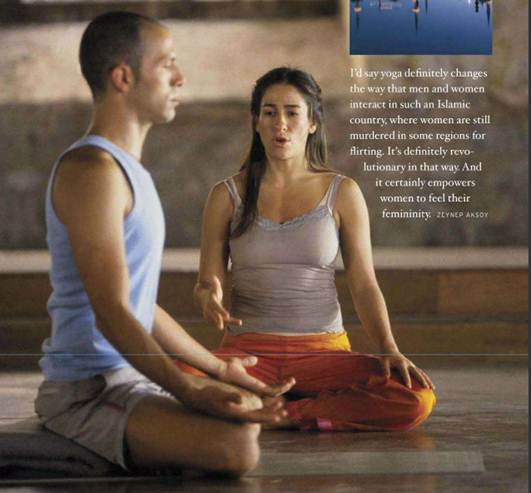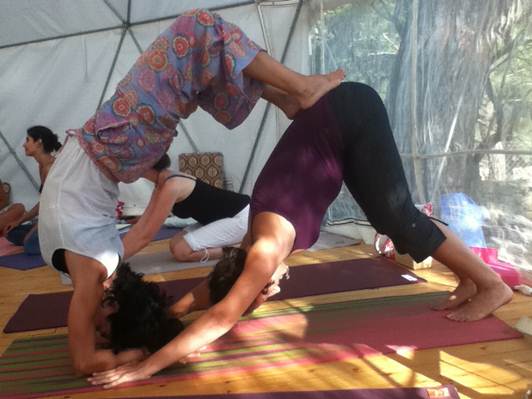Explore the practice through the eyes of the
impassioned in Paris, Tokyo, Sao Paulo, and Istanbul.
There’s no doubt that the human experience
of yoga is universal, and it’s easy to forget that the practice reaches well
beyond the confines of your neighborhood studio or even history-steeped India.
If you were to close your eyes and put your finger on a map, in all likelihood
you’d land on a city that has yoga studios, well-known teachers, and maybe even
a big annual yoga conference. What does this mean for yoga? Is the practice
drastically different in Tokyo and in Paris? How does each place embrace and
assimilate the ancient spiritual practice within its culture?

The four yoga studio owners profiled here
have put their passion, business savvy, and perseverance on full throttle to
build yoga communities in their cities – sometime from the ground up. We asked
them to share their journeys and to describe the ripple effect yoga is having
on their cities.
Turkish insight

After opening a studio in 2001, Zeynep
Aksoy swore she wouldn’t do it again. The studio was successful and continues
under different ownership, while her self-produced DVD sold more than 100,000
copies, but she suffered from burnout. She decided to return to her studies,
becoming a student of European teacher Godfrey Devereux and delving into
meditation in India. While studying with Devereux in Spain, she met her
husband, David Cornwell, who convinced her to open another studio, Cihangir
Yoga. (They have two business partners, teachers Xeynep Uras and Rebekka Haas
Cetin)
The second time around, Aksoy is focusing
on living the philosophy that’s been taught by her teachers. “I’ve found that
the path is not about becoming something you’re not; it’s about becoming more
of who you are,” she says. “I’d call it being more selfish – not in a bad way,
but I take care of myself.” With Cihangir Yoga studios in two locations and an
average of 2,000 students coming through each week, Aksoy’s surrendered
approach seems to be the secrect to her success.

On the witness.
Alsoy describes her personal philosophy and
vision as the “pure advaita message. We want the [students] to feel their body
and to feel what’s going on in the moment as it is. You release the effort and
come into a space where you’re only a witness, instead of struggling through
life and blaming and feeling guilt.”
On the climate of yoga
When Aksoy opened her second studio in
Istanbul, she dropped her prices, and the studio doubled its customers. “We
changed the climate of yoga. It was an elite thing in Turkey, and [then]
everyone started doing [yoga] once we made it accessible.” With the motto “Yoga
for Everyone,” Cihangir offers different classes at a variety of prices, with
the least expensive priced at around three dollar. “We really want to make sure
that everyone – even the taxi driver – can do yoga in our studio,” she says.
“There’s a lot of classism in Turkey that you don’t get in America. We wanted
to break that barrier.”
On a scientific approach.
Aksoy describes a great schism in Turkey
between citizens who want to maintain the separation between church and state
and those whose oppose such secularization. Both Cihangir studios are located
in Westernized neighborhoods; most of the students who come are Westernized and
are suspicious of any religious practice. Because of this, Aksoy says, they are
“so not bhakti” (devotional). Her students favor a more scientific approach.
On lightness of being.
“There’s no alternative community in
Turkey. In America, there are people who have alternative life-styles. But in
Turkey, it’s all the same; it’s homogenous-there’s not really a big mix of
races. And the atmosphere in Turkey is heavy. People smoke. There’s a lot of
pressure on women to sort of act like men so as not to call attention to
themselves. You can’t wear miniskirts on the street. But I notice that the
students who have been with us for many years – they’ve stopped smoking. They
smile more. It’s like lifting a cloud off of people. We’ve brought lightness
and potential happiness to people.”